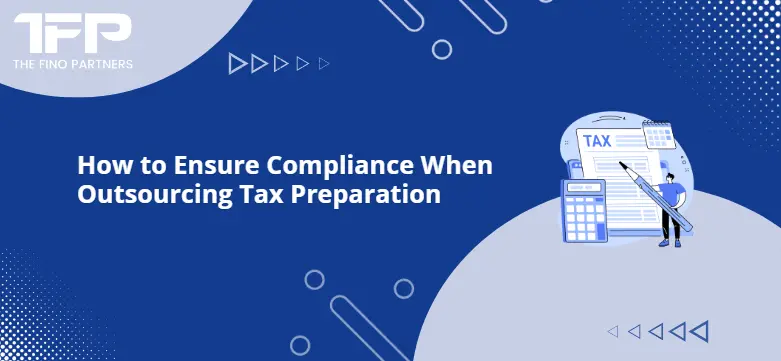Outsourcing tax preparation has gained momentum to become an appealing choice for many American businesses in this day and age. Businesses may obtain specific expertise, lessen operational duties, and ensure proper filings through using outsourced tax preparation services. Outsourcing tax return preparation for your business, you must ensure compliance standards are adhered to. Your business can be in a lofty situation due to financial mismanagement, penalties that will lead to non-compliance. The advantages of outsourcing tax preparation are examined in this article. And how your business can be fit for utilizing these services for a better future.
Why you need to outsource: The benefits of the choice
There are several advantages to outsourcing tax preparation services, especially for businesses that have difficulty with complex tax laws. Businesses that choose to hire out tax return preparation services can:
1. The ease of having experts onboard
Professionals with expertise in tax laws and regulations often provide outsourced tax preparation services. These experts keep up with constantly changing tax laws, ensuring correct filings and reducing the possibility of errors.
2. Preserving Resources and Time
It can take a lot of time and resources for preparing taxes domestically. By reducing the load for internal teams, outsourcing tax preparation frees up businesses to zero in on what they do best.
3. Enhancing the precision
Businesses can count on advanced technologies and previous experience for error-free submissions by outsourcing the preparation of their tax returns. This minimizes the likelihood of fines and audits.
4. The cost-savvy way
Outsourcing is an affordable alternative for businesses of all sizes since it removes the need to purchase pricey software or employ full-time tax professionals.
Although there are multiple advantages to outsourcing tax preparation, reaping these benefits calls for keeping compliance.
The compliance mindset: How to ensure when outsourcing
1. Choosing a credible service provider
Start through looking into and selecting a trustworthy provider of tax preparation services that are outsourced. Seek out providers who have an excellent track record, references, and qualifications (such as CPA or EA). Check their previous experience with US tax laws and regulations.
2. Assess the responsibilities in plate
The business is eventually in charge of compliance, even when tax preparation is outsourced. To ensure tracking, familiarize yourself with significant tax deadlines, documentation needs, and filing obligations.
3. Make sure they have strong service protocol
Outsourcing tax preparation involves transferring private financial information. Verify that the service vendor has strong data security procedures, including encrypting its secure servers, and adherence to applicable GDPR or HIPAA regulations.
4. Clearly State Your Expectations
Create an in-depth agreement that defines the duties, time constraints, and extent of the task. This contract should also include compliance-related clauses, such as adherence to tax laws and data privacy requirements.
5. Ask for regular updates
Regular communication with the outsourced tax preparation provider is essential. Schedule periodic updates and status reports to stay informed about the progress and accuracy of your tax returns.
6. Review Work Thoroughly
Examine the job carried out by the outsourcing vendor prior to filing taxes. This stage ensures precision and compliance to tax laws. For a final assessment, work with a trusted advisor or your internal team.
7. Keeping Up with Tax Laws
In the United States, tax laws are always evolving. To make certain your outsourced tax return preparation services meet the most current regulations, stay apprised about any changes.
The battles at hand and how to overcome these
If not done correctly, outsourcing the creation of returns for taxes might provide problems. Here's how to lessen common problems:
1. The data privacy chapter
Issues Concerns about privacy might come up when financial information is exchanged with other parties. Overcome this by working with suppliers who have strong security measures and strict confidentiality rules.
2. Shortcomings in Communication
Errors can result from inadequate interaction among businesses and service providers. By maintaining lines of communication open and constant through the tax preparation process, you can address this.
3. The heavy Risks of Compliance
Inadequate oversight or provider expertise could result in non-compliance. By carefully screening providers and remaining engaged in the process, you may combat this.
Also Read:- Tax Preparation Outsourcing vs. In-House Tax Filing: A Comparison
Conclusion
There are obvious benefits to outsourcing tax preparation, including improved precision and cost savings. Businesses must, however, take proactive steps to guarantee compliance, such as choosing reliable vendors, keeping channels of communication open, and remaining up to date on tax regulations. Businesses can minimize risks and ensure adherence to U.S. tax rules while reaping the benefits of outsourcing tax preparation by following these guidelines. Fino Partners can be an exceptional partner for your business to delegate outsourcing tax preparation.




























